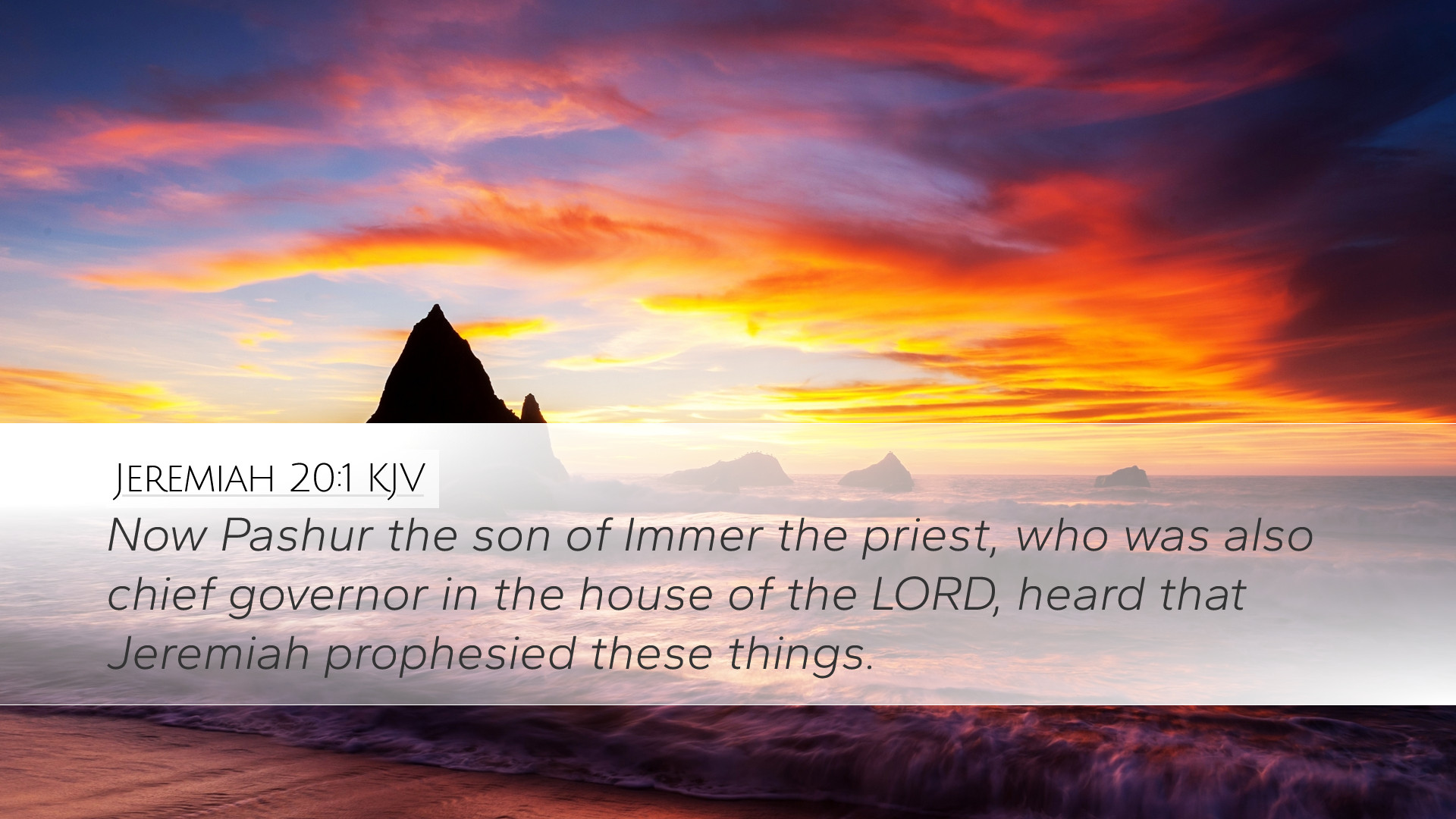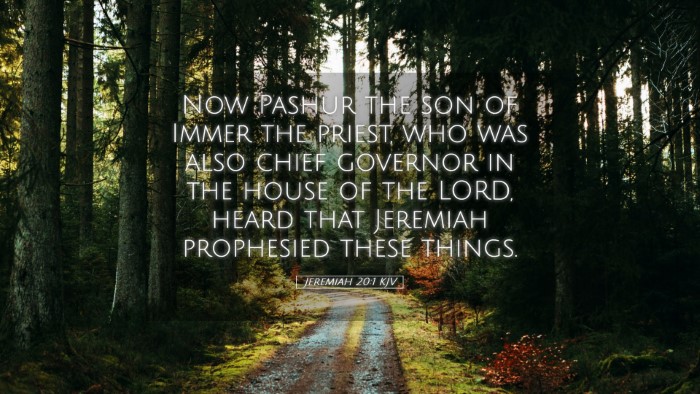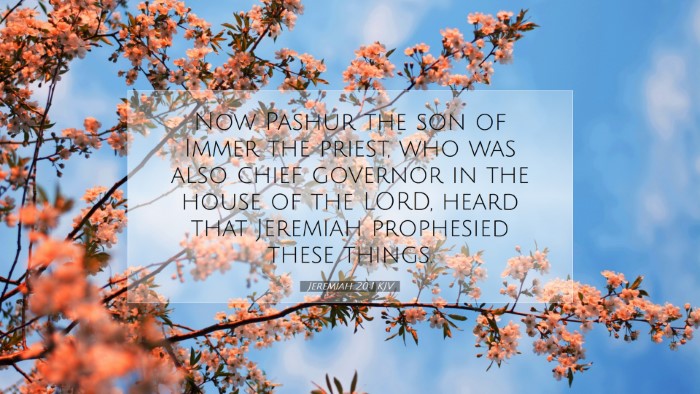Jeremiah 20:1 Commentary
Verse Reference: Jeremiah 20:1 - "Now Pashhur the son of Immer the priest, who was also chief governor in the house of the LORD, heard that Jeremiah prophesied these things."
Introduction
This verse introduces a pivotal moment in the life of the prophet Jeremiah, highlighting the tension between prophetic duty and earthly authority. Jeremiah's prophetic ministry is met with opposition from religious leaders, emphasizing the struggle between divine truth and institutional power.
Contextual Background
In this passage, Pashhur, a priest and chief officer in the temple, reacts to Jeremiah's prophecies that warned of impending judgment upon Judah. This reaction illustrates a broader theme in Jeremiah's writings: the conflict between true prophets of God and the false security maintained by religious authorities.
Pashhur's Role
- Pashhur, as a priest, held a significant position within the temple hierarchy, commanding authority among the people.
- His hearing of Jeremiah’s prophecy suggests an attempt to silence the dissenting voice of the prophet, barking under the pretense of preserving religious sanctity.
- This sets the stage for Pashhur's conflict with Jeremiah, as he represents the institutional and often corrupt leadership of Israel.
The Prophetic Voice
Matthew Henry's Commentary emphasizes that true prophets of God often find themselves at odds with those in power. Jeremiah’s role as a prophet is marked by his willingness to speak uncomfortable truths that challenge prevailing ideologies.
Henry notes that Jeremiah is not alone in this struggle; numerous prophets throughout the Old Testament faced hostility for their messages. Jeremiah's calling was to confront sin and announce God's judgment, a task that elicited animosity.
Spiritual Significance
- The confrontation of Jeremiah by Pashhur illustrates the broader spiritual struggle: the tension between God’s voice and human authority.
- This verse acts as a reminder for modern-day believers of the necessity of discerning God's truth over popular or politically motivated messages.
Albert Barnes' Insights
Barnes points out that the title “chief governor” indicates Pashhur's authority not only as a priest but also as a civil leader in the temple, guarding the sanctity of worship. His response to Jeremiah's prophecy—the protesting of God's coming judgment—suggests an intense desire to maintain faith among the people, albeit through misguided methods.
Barnes elaborates that this early opposition foreshadows the greater rejection Jeremiah would face throughout his prophetic ministry.
Application for Today
Barnes urges present-day leaders and believers to reflect on the implications of standing up for divine truth. Just as Jeremiah faced Pashhur's wrath, contemporary figures may face similar challenges for fidelity to God’s message.
Adam Clarke's Observations
Clarke identifies significant themes embedded in this encounter. He suggests that the choice of Pashhur's response to Jeremiah's warnings stems from fear—fear of losing power, fear of communal unrest, and fear of confronting the path toward chaos.
Clarke describes how the prophetic voice often catalyzes discomfort, prompting leaders to either repent and seek God’s guidance or double down on their authority.
Lessons in Leadership
- True leadership, as illustrated by Jeremiah, requires humility and a willingness to confront uncomfortable truths.
- Church leaders today should examine their motivations: Are they speaking for God’s truth, or merely upholding a facade of peace?
Theological Reflection
In a broader theological context, this verse marks a critical juncture in Israel's history. It illustrates the consequences of straying from God’s guidance. The temple, as a symbol of God’s presence, becomes a focal point of conflict, representing the struggle between obedience and rebellion.
God’s Sovereignty
The events surrounding Jeremiah and Pashhur underline God's sovereignty. Even among oppression, God preserves the prophetic voice to proclaim truth and effect change.
Conclusion
Jeremiah 20:1 serves as a profound reminder of the challenge of prophetic ministry. It confronts readers with the reality of opposition faced by those who speak God's truth. Leaders, theologians, and scholars are called to reflect on their commitment to God’s message, remaining steadfast amid opposition and institutional pressures.


